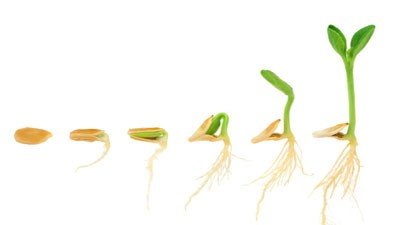This blog is inspired by the work of Jim Rohn and the fact that Spring, the season of sowing and planting has just begun. As a Creator type (Talent Dynamics) it is my favourite time of year. It is the time when I get to explore new ideas and strategise (and prioritise) for the upcoming year. Now I know most people say do this in January but I love to work with the seasons of the year so Spring is my time for plating and initiating all my new projects for the year.
As I’ve been reflecting on what projects (seeds) to plant for this I have been reminded of the first of the basic law of leadership: Whatever you sow, you reap.
In other words, in order to reap rewards (i.e. get success), you must first sow. You must take action and put your ideas into practice otherwise you will never be able to reap. Reaping is reserved for those who sow, who plant. To deserve the harvest, you must plant the seed. Take care of it in the summer. Carefully harvest it and then do wise things with the harvest.
Now, there is a second part to the law which states: If you sow good, you reap good. If you sow bad, you reap bad. This means you cannot sow badly and then hope for good. You can’t plant weeds and hope for flowers.
Here’s something else about the law of sowing and reaping. You don’t reap only what you sow. That’s important to understand. You reap much more than what you sow. If you just reaped what you sow, what’s the exercise for?
It is also important to understand that the law works in both positive and negative, so be careful what you sow. An old prophet once said, “If you sow the wind, you don’t reap wind, you reap a whirlwind.” Therefore you’ve got to be careful sowing the wind, because it might just come back as a whirlwind. That’s on the negative side. But now it also works on the positive side. If you plant a cup of corn, how much do you get back—a cup? No, a bushel for the cup. You get back much more than what you plant. That’s the reason for planting—for the increase.
The final key to the law of sowing and reaping is:. Sometimes it doesn’t work at all. Everybody has to understand. The farmer plants the crop in the spring and takes care of it all summer. He’s an honorable man. Loves his family and is a decent citizen. But the day before he sends the combine harvesters into the field, a hailstorm comes along and beats his crop into the ground. And it’s gone. It’s lost.
So this time it didn’t work. Now what must the farmer do? He’s got to decide whether to do it again or not. “Shall we take another chance the next spring?” I would advise him to do so even though he lost everything in the last harvest because more often than not, you’ll have a harvest if you plant in the spring. There’s no guarantee, but it’s pretty good odds.
And it’s the same in business. We need to carefully select what we want to sow and then we have to nurture the seed (project, programme etc) until it is the right time to harvest. If we pull up the seeds too early and give up on projects before they have had time to get established then we will never reap the benefits of the harvest. And this is what I see a lot of clients doing. They give up on their dreams just before the harvest period. And of course like the analogy goes, even despite all our good work the crop (business or project) might still fail. And what do you do then. I suggest be like the farmer, dust yourself off and have another go. After all the law of probability will probably come into play meaning that the likelihood of failure will be diminished, assuming of course that you learn from your mistakes and don’t replicate them.

Julia Felton (aka The Business Wrangler) is the founder of Business HorsePower. Business leaders, entrepreneurs and executives hire her to accelerate their business performance by harnessing the energy of their people to work more collaboratively together. By aligning purpose with actions the team achieves exponential results as everyone starts pulling in the same direction.
Julia believes that business is a force for good and through designing purpose-driven businesses that leverage the laws of nature, and the herd, you can create businesses founded on the principles of connection, collaboration and community that make a significant impact in the world.






